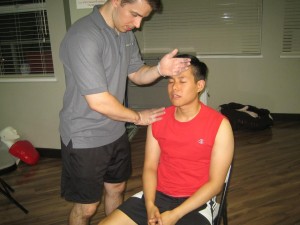Diarrhea or loose bowel movement is the unpleasant occurrence of copious watery bowel movement or three or more motions within 24 hours. It may be caused by a number of factors such as bacterial and viral infections, food intolerance, parasites, reaction to medicines, intestinal diseases and functional bowel disorders. The absolute cause is unknown and most often diarrhea can be associated with some other disorders that has underlying causes not directly related to the gastrointestinal system. It may also be caused by food or other poisoning.
The material posted on this page on poisonings and diarrhea is for learning purposes only. Consult your physician if you think you have diarrhea. To learn more about recognizing and managing poisoning register for a first aid course with one of our training providers in Canada.
Symptoms associated with diarrhea
The following are some signs and symptoms of diarrhea
- Increased frequency of bowel movement increases
- The consistency of stools becomes watery
- Pain may be associated with diarrhea
- Blood and mucus in stool
What to do to prevent dehydration

A person having diarrhea loses a lot of fluids as well as electrolytes that may cause other aggravating conditions. The first aid management to prevent dehydration is to give the person plenty of clear fluids such as water. You may also offer drinks that replenish electrolytes such as Pedialyte or Infalyte. Fruit juices as well as sports drinks should be diluted in half concentration by adding water. If an infant has diarrhea, have him or her drink sips of water (or any rehydrating solution) frequently through medicine drops. Always make sure that the person drinks more fluids than what they are losing. If they are unable to drink fluids, call health care providers immediately.
Rest and Easy on Eating
Resting and relaxing is important in helping manage diarrhea. Do not let the victim engage in strenuous activities as he or she may further lose fluids and electrolytes through sweating and hard work. For children, it is also best to offer foods that are easy to eat. This may include bananas, rice, apple sauce and toast (BRAT diet). The patient is also advised to eat semi-solid and low fiber foods gradually and avoid greasy, spicy or fatty foods.
When to call a doctor
If you the patient can not consume fluids and is showing lower level’s of consciousness consult a physician immediately. If you deem it necessary that he would need antidiarrheal medications, refer him to a physician immediately. Refer the person immediately if he or she is taking antibiotic medications. Signs of blood in the stool accompanied with the diarrhea also warrants a visit to a physician immediately.
Reference:
Weil. Condition Care Guide. Retrieved on June 13, 2014 from http://www.drweil.com/drw/u/ART00344/diarrhea.html
